
Our beloved pets are subject to many of the same diseases that can occur in humans. But one you might not suspect is dementia. “We all know that Alzheimer’s disease and other dementias are among the most common conditions humans can encounter as they age,” Stephanie McGrath, associate professor of neurology at Colorado State University’s College of Veterinary Medicine and Biomedical Sciences, told the Washington Post recently. “What people don’t realize is that our pets—dogs and cats—can get it, too, and it’s probably also very common.” These are some of the signs your pet may have developed dementia.
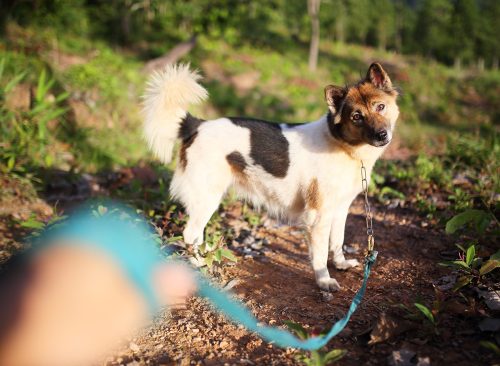
An aging pet with dementia may depart from their familiar routines. They may seem confused or disoriented, wander aimlessly, or seem lost in familiar surroundings.
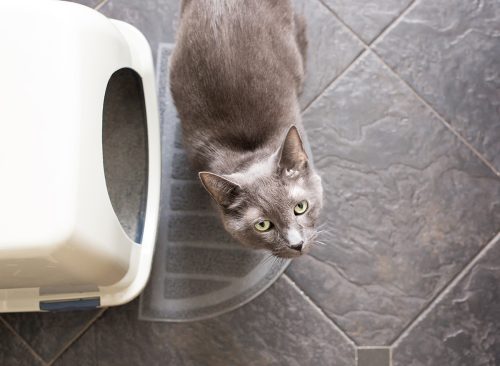
Another common sign is when a pet dog or cat begins to forget everyday habits they’d once mastered, such as house training or using the litter box.

Differences in a pet’s sleep-wake cycle can also indicate dementia, experts say. “They might sleep more during the day, but mostly, they will start waking in the night,” says the American Kennel Club.
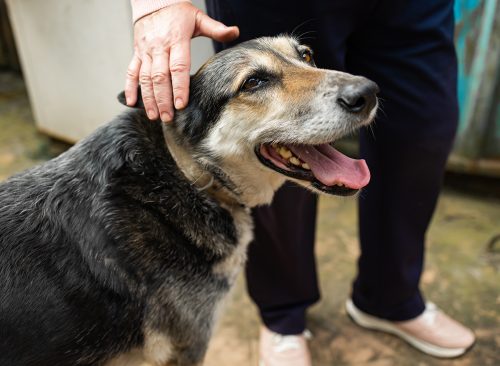
A pet with dementia may seem more anxious or depressed. “Your dog’s social relationships with people and other pets will be affected,” says the American Kennel Club. “They might become clingy where they used to be independent or become aloof where they were once friendly.”

Among cats, increased howling or crying is a common sign of dementia. “With cats, there is excessive vocalization and disorientation and changes in interaction with humans or other animals, such as hissing and swatting,” Starr Cameron, clinical associate professor in small animal neurology at the University of Wisconsin at Madison’s School of Veterinary Medicine, told the Post. “Some cats are up all night and vocalizing. They go outside the litter box or can’t find it.”
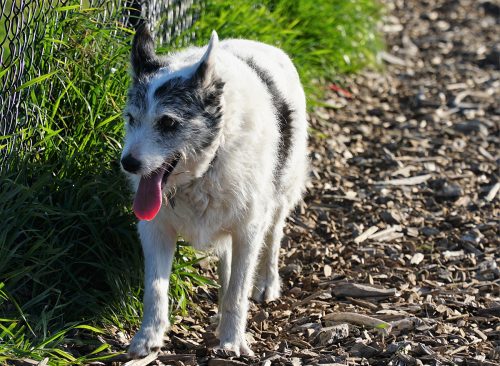
A dog with dementia may engage in repetitive behavior, like pacing.
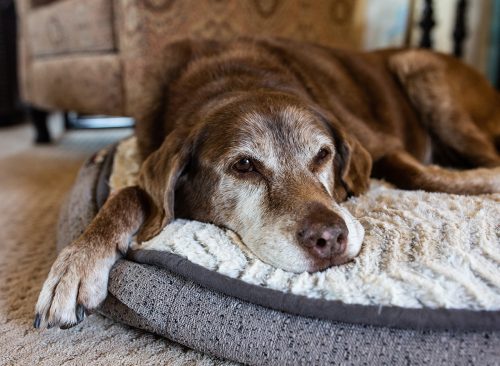
A previously playful and interactive pet may become withdrawn.

Experts aren’t sure. One study places the number at 14 to 35 percent of the pet dog population age 8 and older. Other research suggests nearly one-third of cats ages 11 to 14 and 50 percent of cats 15 and older are affected. Many animal experts believe those numbers are conservative.
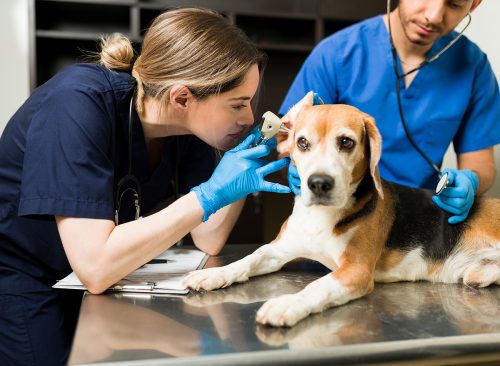
A diet rich in antioxidants may help reduce cognitive decline in older dogs and cats. Your veterinarian might also suggest supplements to reduce dementia symptoms, or they may prescribe selegiline hydrochloride, a drug that can help control symptoms.
RELATED: Kayaker Swallowed by Humpback Whale Tells Her Amazing Survival Story

Maintaining a regular routine can help dogs with dementia feel more secure, and regular exercise is important for dog health at any age—as is any kind of mental stimulation, such as introducing new games or toys.














